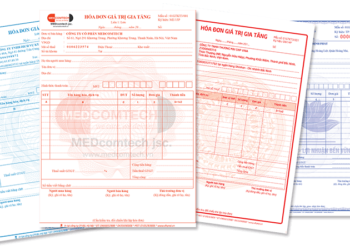A business has debts to pay, but the creditor has dissolved, so how are the debts to be paid handled properly?
This article was consulted by Lawyer Nguyen Quang Trung
TLT LEGAL LLC – VIETNAM BAR FEDERATION
Legal grounds:
- Civil Code 2015;
- Enterprise Law 2020;
- Decree No. 01/2021/ND-CP;
- Circular No. 200/2014/TT-BTC;
- Circular No. 78/2014/TT-BTC.
We receive the following questions:
My company has an overdue debt that has not been paid for a long time as the company is in trouble. Now I know that the creditor has been dissolved for a while. I want to ask if my company’s debt can be forgiven and how to handle it?
Pursuant to Clause 9, Article 372 of the 2015 Civil Code as follows:
Article 372. Grounds for termination of obligations
The obligation terminates in the following cases:
9. The obligee is an individual who dies but the right to claim does not belong to the inheritance or a legal entity that ceases to exist but the right to claim is not transferred to another legal entity;
According to the above regulations, before a legal entity ceases to exist and the rights of that legal entity are not transferred to another legal entity, the rights of that legal entity will also terminate.
Thus, if before the creditor dissolves, the debt collection rights of this legal entity are not transferred to another legal entity, these debt collection rights will terminate. So the debtor in this case does not have to fulfill the debt payment obligation after the creditor dissolves.
Pursuant to Article 96 of the 2015 Civil Code as follows:
Article 96. Termination of legal entity existence
- A legal entity ceases to exist in the following cases:
- Consolidation, merger, division, conversion of form, dissolution of legal entities according to the provisions of Articles 88, 89, 90, 92 and 93 of this Code;
- Be declared bankrupt according to the provisions of bankruptcy law.
- A legal entity ceases to exist from the time its name is deleted from the legal entity registration book or from the time determined in the decision of a competent state agency.
- When a legal entity ceases to exist, its assets are resolved according to the provisions of this Code and other relevant laws.
Pursuant to Clause 6, Article 41 of Decree No. 01/2021/ND-CP as follows:
6. “Dissolved, bankrupt, ceased to exist” is the legal status of an enterprise that has completed dissolution procedures according to regulations and has had its legal status updated by the Business Registration Office according to Clause 8, Article 208, Clause 5, Article 209 of the Enterprise Law; The enterprise has a Court decision declaring bankruptcy according to the provisions of bankruptcy law; The enterprise ceases to exist due to being divided, consolidated, or merged according to Clause 5, Article 198, Clause 5, Article 200, Clause 4, Article 201 of the Enterprise Law. The time to determine the change in legal status “Dissolved, bankrupt, ceased to exist” is the time when the Business Registration Office updates the legal status on the National Database on business registration.
According to the above regulations, an enterprise is considered dissolved and ceases to exist when the business registration agency updates its legal status “Dissolved, bankrupt, ceased to exist” on the National Database on business registration.
Individuals and organizations in need can look up the legal status of businesses for free on the National Business Registration Portal at website: https://dangkykinhdoanh.gov.vn
Pursuant to Vietnam Accounting Standard No. 14 as follows:
30. Other income specified in this standard includes revenues from irregular activities, in addition to revenue-generating activities, including:
…
- Payable debts that have now lost their owner are recorded as an increase in income;
…
33. A payable debt that has now lost its owner is a payable debt whose creditor cannot be identified or the creditor no longer exists.
According to the above regulations, if a debt must be paid but the creditor no longer exists, that debt is recorded as other income of the enterprise.
Thus, when the creditor has officially dissolved:
- Enterprises that are debtors do not have to fulfill debt payment obligations;
- The forgiven debt is accounted for as other income and must be declared and calculated with corporate income tax according to regulations of law.
Note: If the National Business Registration Portal shows the status of the creditor business as “Under dissolution procedures”, that business has not been officially dissolved. In this case, the debtor still has the obligation to pay the debt according to the agreement and regulations of law.





